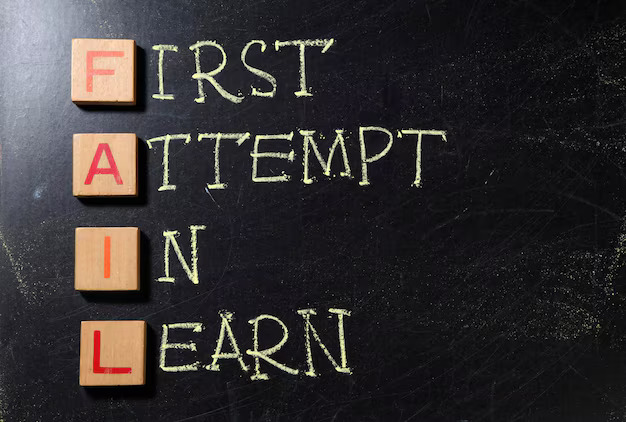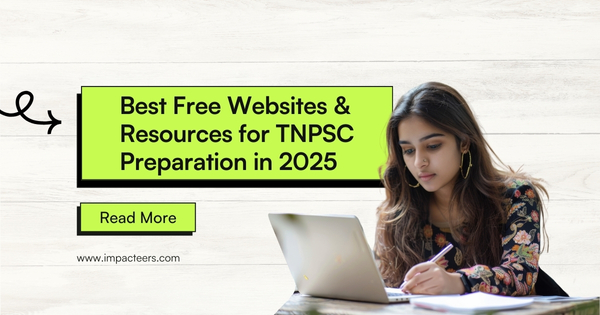Learn how to recover after UPSC setbacks—to reset your schedule, analyze the result, improve prelims/mains answers, rebuild confidence and plan a stronger comeback. Use Impacteers courses to support revision and writing strategy.

Failing the UPSC Civil Services Exam—whether at prelims, mains, or interview stage—can feel devastating. But it’s also a turning point. Many Indian aspirants, including toppers like Abhishek Singh and Shakti Dubey, faced failures before cracking the exam on later attempts Reddit+15Sriram’s IAS+15The Times of India+15. What sets them apart isn’t luck—it’s how they responded: by reflecting, adapting, and preparing smarter next time around.
This long-form article will guide you step-by-step on how to transform UPSC failures into growth by understanding mistakes, rebuilding your preparation strategy, managing syllabus and test cycles, and staying emotionally resilient. We also show where Impacteers courses can provide focused support—especially in prelims revision, mains answer writing, and strategic planning.
1. Emotion First: Acknowledge, Reflect, Rebuild
1.1 Accept and Process the Result
Don’t suppress your disappointment. Allow a healthy pause—talk with someone you trust, journal your experience, or simply sit with the feelings. Acknowledge that “failure is not final, but quitting is” IAS Gyan.
1.2 Reflect Objectively
Review your attempt like a project. Ask:
- Which paper—Prelims, Mains, or Interview—was weak?
- Did you misunderstand directives or over-read books?
- Was stress, time-management, or misaligned strategy at play?
Do a SWOT analysis:
- Strengths: subjects you scored well in.
- Weaknesses: areas where you consistently lost marks.
- Opportunities: subjects or strategies you can strengthen.
- Threats: burnout, time constraints, emotional fatigue.
1.3 Reconnect with Your Motivation
Revisit your core reason for attempting UPSC. Was it public service, impact, identity? Let that purpose anchor your mindset before you re-enter preparation mode.
2. Data-Driven Strategy Reset
2.1 Performance Review
If prelims — analyze cutoff trends, wrong options, and CSAT errors. If mains — review answer scripts for structure issues, lack of examples, or weak writing technique—especially in general studies answers and optional.
2.2 Align Resources
Often aspirants shift books frequently. Now’s the time to choose a focused, limited source list aligned with UPSC syllabus, not trends. Stick to foundational books supplemented by current affairs from standard platforms.
2.3 Rebuild a Study Blueprint
Create a revised study plan:
- Phase 1: Strengthen weak areas with guided sessions.
- Phase 2: Simulate questions (Prelims + emerging topics).
- Phase 3: Answer writing practice and revision cycles.
- Phase 4: Final full mocks and calendar alignment to UPSC dates.
Each month or week should have clear targets and self-assessments.
3. Prelims Remediation: Precision over Volume
3.1 Master PYQ Logic
Use previous years’ Prelims question papers (minimum 7–10 years) to understand key areas UPSC repeatedly tests. Regular review helps build elimination patterns.
3.2 Strengthen Elimination Skills
Don’t just solve MCQs—understand why each wrong option is wrong. Aim to reduce blind guessing and improve accuracy.
3.3 Bring Depth to Think
Balance fast fact recall with understanding the “why” behind questions. Revise linked GS subjects, data, indices.
3.4 Smart Mocks Over Quantity
Take mocks every 2–3 days with proper post-test analysis. Track subject-wise accuracy trends. Use structured mock tools like those in Impacteers courses for feedback dashboards and elimination drills.
4. Mains Comeback: Craft Answers That Convert
4.1 Improve Answer Structure
Each answer should have:
- A crisp introduction (definitions, context)
- Structured body (multiple dimensions, subheadings)
- Insightful conclusion (recommendations or forward-thinking)
4.2 Use Sample Solutions Wisely
Don’t copy but adopt the logic. Compare condemnation in your answer to model answers to spot gaps—especially in ethics, governance, and interlinking themes.
4.3 Regular Skill Assessment
Write 2–3 mains questions weekly, get them reviewed by mentors. Platforms like Impacteers Skill Assessment break down each answer by structure, depth, clarity, and provide correction suggestions.
4.4 Priority-Based Revision
Follow a weekly cycle: Read one topic deeply, revise it later, then write practise answers. This pattern builds retention and writing speed incrementally.
5. Optional Strategy Pivot (If Needed)
If optional subject was weak in history of past attempts, consider:
- Revising entire syllabus with a structured module.
- Switching to a subject with good overlap with GS or your background.
- Practising answer writing and peer-review.
Impacteers courses offer optional-specific guidance and masterclasses which can help you regain confidence or pivot to a new subject smartly.
6. Resilience & Consistency Week-by-Week
Building a tough mindset is as important as content:
- Micro-Goals: Track daily study hours, mocks solved, answers written.
- Weekly Check-In: Revisit your SWOT and adjust course.
- Monthly Reset: Assess consistency, emotional energy, and revise strategy if needed.
- Self-Care: Sleep well, exercise, take breaks, journal success and setbacks.
Your schedule should be flexible but directed toward continuous improvement, not merely repetition.
7. Backup & Career Enablement Options
Even as you prepare to reattempt, build a support safety net:
7.1 Explore Schemes like UPSC Pratibha Setu
This new initiative connects strong aspirants who missed the final list to job opportunities in public and private sectors IAS GyanThe Times of India+3Sleepy Classes IAS+3Vajirao IAS Academy+3The Economic Times.
7.2 Maintain Alternate Career Paths
Apply to roles in policy research, public sector, EdTech, state PSCs, or SSC. Platforms like Impacteers Jobs bridge exam-focused preparation with real-world career transitions—ensuring you have options even during your UPSC journey.
8. Real Aspirant Lessons for Staying the Course
Story of Abhishek Singh
After three unsuccessful attempts, he cracked UPSC with AIR 78 on his fourth. Key: pivot to Anthropology optional, focus on writing rather than extra reading, meditation to prevent burnout Reddit+2IAS Gyan+2The Times of India.
Story of Vibhor Bhardwaj
Rank jump from AIR 743 to 19 using intelligent planning, mock refinement, and embracing mentorship plus AI tools in interview prep The Times of India.
These stories reinforce meaningful takeaway: failures aren’t dead ends—they are re-routes.
Conclusion
Upsetting as it is, failing UPSC is not the end—it’s an opportunity to reset, re-strategize, and re-emerge stronger. What matters is not the setback, but your response.
By analyzing your attempt, refining your plan, focusing on error-closure, improving writing skills, and staying mentally grounded—you position your next attempt to succeed.
Courses like those from Impacteers are designed exactly for this next-level turnaround. They offer feedback-ready mocks, skill diagnostics, mentorship-backed writing labs, and optional support—all tied to the UPSC calendar.
Frequently Asked Questions (FAQs)
1. What should I do immediately after a failed UPSC attempt?
Pause to process emotions, analyze your score-sheet and essays critically, then reboot with a new focussed strategy aligned to syllabus and past mistakes.
2. How many months are ideal before starting next attempt?
If results are out by August, spend September reflecting and planning. Start a new cycle by October–November. Ideally, you have 6–9 months for strategy overhaul before next prelims cycle.
3. Should I change optional subject after failing?
Only if your score was significantly low despite serious effort, or you’ve lost genuine interest. Otherwise, refine strategies, improve answer writing, and deepen content relevance.
4. How can Impacteers courses support my repeat preparation?
They provide skill-based prelims test packs, structured mains and ethical answer modules, essay mentorship, mistake-redressal quizzes, and optional topic clinics—precisely what you need post-failure to accelerate progress.
5. How do I stay motivated through multiple attempts?
Set weekly micro-goals, track progress visually, join peer mentorship groups, pick motivational role models (like toppers), and keep career fallback options active to reduce performance anxiety.

Post Comment